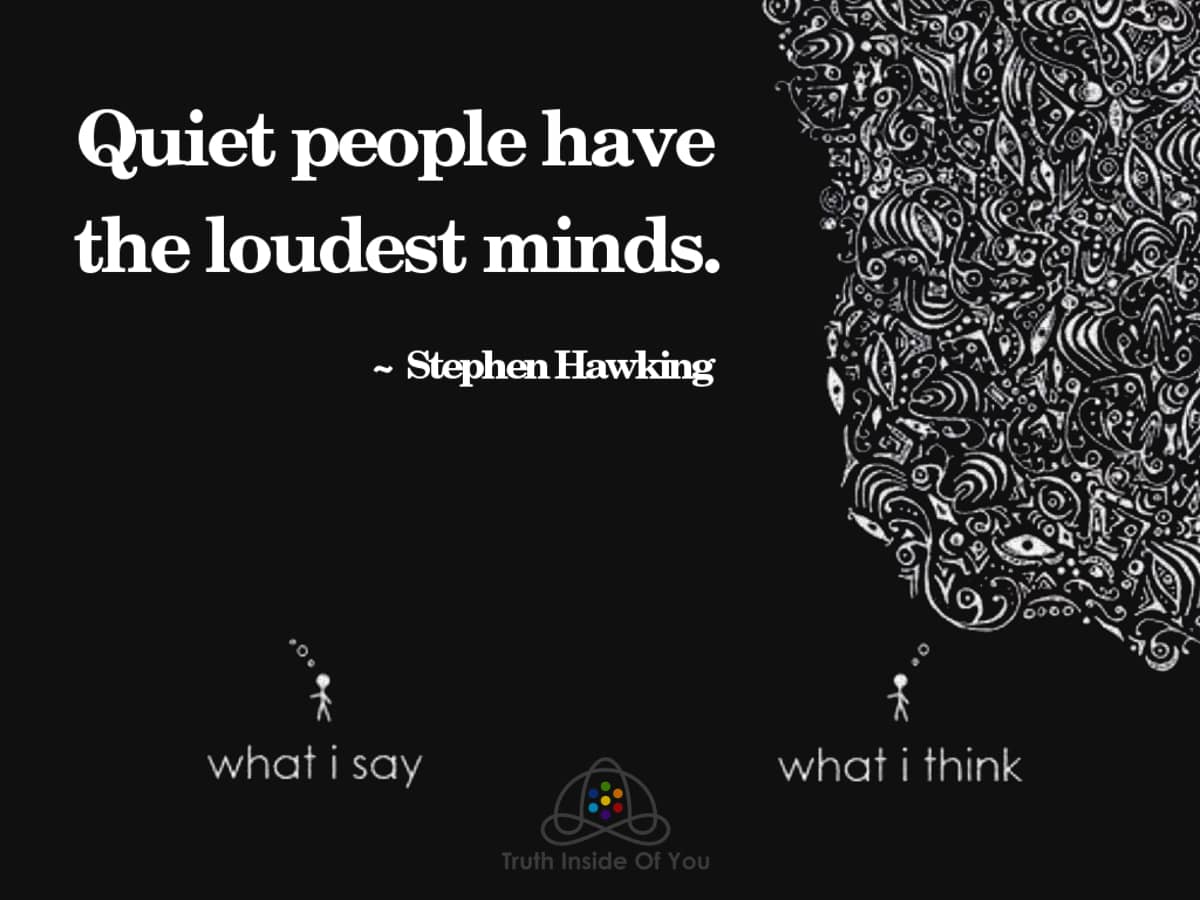
Have you ever found yourself wondering what truly occupies the minds of the world’s most successful individuals? Beyond the headlines and the monumental deals, what fundamental ideas, insights, and philosophies are shaping their decisions, fueling their drive, and providing the bedrock for their remarkable achievements? It turns out, a common thread weaves through the lives of many billionaires: a profound commitment to reading.
Indeed, influential business figures, from Tesla and SpaceX CEO Elon Musk to Amazon founder Jeff Bezos and Microsoft cofounder Bill Gates, consistently attest to learning some of their most crucial life lessons from books. These aren’t just casual recommendations; they are endorsements of works that have demonstrably strengthened their business acumen, honed their leadership skills, and offered profound insights into technology, humanity, and the very nature of success. These titans of industry aren’t just reading for leisure; they are actively seeking wisdom and strategic frameworks within the pages of these impactful titles.
We’ve delved into the literary preferences of these ultra-successful individuals, curating a definitive list of books that appear time and again in their recommendations. These are the books they carry, gift to friends, and revisit when moments allow. By exploring these 14 titles, we offer a unique glimpse into the intellectual foundations of billionaire thinking, providing a practical pathway for anyone aspiring to achieve success by their own measure. Let’s explore the first seven books that have profoundly influenced these extraordinary minds.

1. **Sapiens by Yuval Noah Harari**Yuval Noah Harari’s “Sapiens” stands as a monumental work that has reshaped how millions understand human history. This sweeping chronicle, recommended by 11 billionaires including Bill Gates and Mark Zuckerberg, traverses anthropology, biology, and economics, providing a brain-expanding journey from our earliest foraging tribes to the complexities of modern credit card systems. It challenges conventional wisdom, offering a fresh perspective on how humanity came to dominate the planet and what that means for our future.
Harari, as Wikipedia notes, “sees the natural sciences as setting the limits of possibility for human activity and sees the social sciences as shaping what happens within those bounds.” This framework allows readers to grasp the deep, underlying currents of human development, offering invaluable context for understanding contemporary societal and technological shifts. The book encourages a broad, interdisciplinary view of progress and challenges, which is crucial for leaders operating in a rapidly changing world.
With over twelve million copies sold and a formidable 4.4 out of 5 rating from over 45,000 reviews on Goodreads, its impact is undeniable. Mark Zuckerberg famously made it the first pick for his Facebook book club, describing it as “a big history narrative of human civilisation.” This endorsement highlights its power to synthesize vast amounts of information into a cohesive and engaging narrative, making it an essential read for those who seek to understand the trajectory of human endeavor.

2. **Principles by Ray Dalio**Ray Dalio, the visionary behind Bridgewater Associates, the world’s largest hedge fund, offers a rare look into his operational philosophy in “Principles.” This book serves as a comprehensive life manual for those committed to radical transparency and relentless logic. It presents a meticulously developed set of principles that Dalio cultivated during his tenure, spurred by a candid memo from his top lieutenants regarding his management style in 1993.
The book outlines a systematic approach to decision-making, emphasizing algorithms for problem-solving and the concept of “believability-weighted” opinions. This framework encourages objective evaluation and continuous learning, urging readers to confront uncomfortable truths in pursuit of optimal outcomes. It’s a rigorous guide to building a culture of meritocracy and intellectual honesty within any organization, a lesson keenly appreciated by leaders like Drew Houston, Dustin Moskovitz, Howard Marks, and Jack Dorsey.
Initially published as a shorter online version in 2011, “Principles” garnered over three million downloads before its full publication. This grassroots popularity underscored its immediate relevance and practical value. The expanded book went on to sell over four million copies and was crowned Amazon’s business book of 2017, solidifying its status as a must-read for anyone serious about mastering organizational and personal effectiveness.
Read more about: Beyond the Balance Sheet: 12 Billionaire Investment Strategies to Forge Generational Wealth
3. **High Output Management by Andy Grove**Andy Grove, the former CEO of Intel, transformed the concept of productivity into an almost sacred discipline with his seminal work, “High Output Management.” Far from a typical management theory text, this book functions as a tactical field manual, packed with actionable insights for middle managers and executives alike. Grove meticulously details the intricacies of building high-performing teams, optimizing time allocation, and establishing scalable operational systems.
The book has amassed over 800 reviews on Goodreads, boasting an average rating of 4.3, a testament to its enduring relevance and practical application. Endorsed by 9 billionaires, including Brian Armstrong, Brian Chesky, Larry Ellison, and Ron Conway, it’s revered as a “legendary business book” and a “Silicon Valley staple.” The foreword by Ben Horowitz further cements its credibility within the tech community, emphasizing its foundational role in modern business practices.
Marc Andreessen, a prominent venture capitalist, encapsulated Grove’s influence by stating, “Andy exemplifies the best of Silicon Valley. Andy built the model for what a high-quality Silicon Valley company could be.” This underscores the book’s profound impact on shaping not just individual managers, but entire organizational cultures. It’s a definitive guide for anyone looking to run their operations with Swiss clockwork precision and achieve truly high output.

4. **Atlas Shrugged by Ayn Rand**Ayn Rand’s epic 1957 novel, “Atlas Shrugged,” delves into a dystopian vision of the United States where private businesses grapple with an ever-increasing burden of laws and regulations. Recommended by 8 billionaires, including Elon Musk, Ev Williams, Peter Thiel, and Mark Cuban, this work is more than just a story; it’s a philosophical treatise on capitalism, individualism, and the vital role of innovators in society. Rand’s stated goal for the novel was to illustrate “how desperately the world needs prime movers and how viciously it treats them,” and to portray “what happens to the world without them.”
Musk, in particular, has openly credited Rand’s work for profoundly shaping his views on economic independence and the essence of innovation. The novel’s powerful narrative, depicting a world where the most capable individuals withdraw their talents in response to societal overreach, resonates deeply with those who champion entrepreneurship and free markets. It’s a provocative exploration of the societal implications when creators and producers are stifled by bureaucracy.
Despite being published over six decades ago, “Atlas Shrugged” continues to sell hundreds of thousands of copies annually, having moved 9 million copies as of 2019. This sustained popularity suggests that its themes—the valorization of individual achievement and the critique of collectivism—remain highly relevant. It appeals to a mindset that values self-reliance and groundbreaking thought, making it a compelling read for those who aim to carve their own paths.
Read more about: The Dollar Sign: Tracing Its Storied Origins, Global Currency Impact, and Unexpected Digital Dominance

5. **The Hard Thing About Hard Things by Ben Horowitz**Ben Horowitz, a revered figure in Silicon Valley, offers an unvarnished and profoundly honest look at the realities of leadership in “The Hard Thing About Hard Things.” This book stands apart by refusing to peddle fairy-tale success stories. Instead, it dives headfirst into the often messy, uncomfortable, and brutally challenging aspects of leading a company, from navigating layoffs and boardroom conflicts to maintaining sanity when a business faces existential threats.
Recommended by 7 billionaires, including Keith Rabois, Larry Page, Peter Thiel, and Mark Zuckerberg, the book is celebrated for its candor and practical relevance. Horowitz famously distinguishes between what is easy and what is right, providing real problems with real advice, utterly devoid of fluff. His direct, straight-talking style, often interspersed with rap lyrics from artists like Nas and Kanye West, makes complex leadership dilemmas accessible and relatable.
With an impressive average rating of 4.23 from over 3,000 reviews on Goodreads, the book has resonated deeply with entrepreneurs and executives. One review hails it as “one of the best books you’ll ever read on entrepreneurship and being a CEO.” It’s a survival guide for those at the helm, offering invaluable perspective on enduring the inevitable trials and tribulations of building and scaling a company.
Read more about: Remember When? These Iconic 90s Teen Movies Defined Our Youth (And Still Do!)

6. **Poor Charlie’s Almanack, compiled by Peter D. Kaufman**“Poor Charlie’s Almanack” is an extraordinary compilation of speeches and talks by Charlie Munger, Warren Buffett’s brilliant and often brutally honest sidekick, and vice chairman of Berkshire Hathaway. Compiled by Peter D. Kaufman and first published in 2005, this book is essentially a masterclass in multidisciplinary thinking, designed to equip investors with the psychological acumen needed to keep investing simple and profoundly effective. It’s a curated buffet of Munger’s wisdom, filled with his unique insights and unforgettable one-liners.
Recommended by Bill Gates, Daniel Ek, Drew Houston, Marc Andreessen, Patrick Collison, and, of course, Warren Buffett himself, this book offers a rare glimpse into the mind of one of the broadest thinkers ever encountered, as described by Bill Gates. Buffett famously referred to Munger as “the abominable no-man” for his uncanny ability to be right by simply saying no, highlighting Munger’s disciplined approach to avoiding mistakes and focusing on core principles.
Drew Houston of Dropbox also praised it as one of the best books he had ever read, underscoring its profound influence on entrepreneurial thought. Interestingly, Charlie Munger famously eschews modern technology, not using a computer or a smartphone, yet his timeless wisdom is revered by countless tech billionaires. This paradox highlights the enduring power of fundamental principles over fleeting trends, making the almanack a truly unique and impactful read.

7. **Blitzscaling by Chris Yeh and Reid Hoffman**“Blitzscaling: The lightning-fast path to building massively valuable companies” is a definitive guide for those who believe that rapid growth isn’t just a strategy but a necessary lifestyle in today’s competitive landscape. Co-authored by LinkedIn co-founder Reid Hoffman and Chris Yeh, this book articulates the science and art of rapidly scaling a company to serve a large, often global market, with the ambitious goal of becoming the first mover at scale. It’s about strategic mayhem with a profound purpose.
Hoffman himself explains, “Blitzscaling is what you do when you need to grow really, really quickly.” This approach is about making intelligent, calculated bets in uncharted territory, even when the path ahead is foggy and chaotic. It’s a blueprint for audacious growth that prioritizes speed and market dominance over efficiency in the initial stages, a concept that resonates deeply with leaders accustomed to high-stakes decision-making.
Featuring a foreword by Bill Gates, “Blitzscaling” has garnered significant attention, with over 5,000 reviews on Goodreads. While it holds a 3.95 score, indicating it might not be a unanimous favorite, its billionaire fans—including Brian Chesky, Eric Schmidt, Vinod Khosla, Changpeng Zhao, and Sheryl Sandberg—underscore its critical importance in their strategic thinking. The book, drawing inspiration from military tactics, perfectly blends startup strategy with battlefield bravado, making it essential reading for anyone aiming for explosive, impactful growth. This book lays out how to aggressively expand, even when it means embracing calculated risks and navigating intense uncertainty. It provides a roadmap for securing market leadership in an increasingly fast-paced global economy.
Having explored the foundational texts that lay the groundwork for billionaire thinking, we now turn our attention to seven more influential titles. These books delve into critical areas like innovation, artificial intelligence, strategic resilience, and the historical lessons that continue to inform future success. They offer unique perspectives for navigating today’s complex business landscape and anticipating tomorrow’s challenges.
These next selections reveal the breadth of knowledge and diverse interests that define the intellectual pursuits of the world’s most successful leaders. From surviving market shifts to envisioning futuristic digital worlds, these reads underscore a continuous quest for mastery and foresight. Let’s uncover these further insights that shape the minds of industry titans.

8. **Only the Paranoid Survive by Andrew Grove**Andrew Grove, the legendary former CEO of Intel, offers a masterclass in corporate resilience with “Only the Paranoid Survive.” This book, lauded by Bill Gates, Charlie Munger, and Steve Jobs, promises to teach readers how to exploit the crisis points that challenge every company. It’s a profound exploration of “strategic inflection points”—those pivotal moments where market dynamics fundamentally shift, demanding a radical change in strategy.
Grove illustrates how businesses must constantly adapt or face obsolescence, drawing directly from Intel’s own journey under his leadership. Steve Jobs famously stated, “you must learn about [strategic inflection points], because sooner or later you are going to live through one.” This underscores the book’s vital message: vigilance and adaptability are not just desirable traits, but essential for survival in a rapidly evolving market.
With over 8,000 Goodreads reviews averaging 3.96 stars, the book’s influence is undeniable. Peter Drucker, a renowned management consultant, even called it “dangerous” because “It will make people think.” This reaction highlights its capacity to provoke deep introspection and challenge conventional business wisdom, making it a critical read for leaders preparing for unforeseen market shifts.

9. **The Innovator’s Dilemma by Clayton Christensen**Clayton Christensen, a distinguished Harvard professor, revolutionized business strategy with “The Innovator’s Dilemma.” This seminal work delves into the paradox of why well-managed companies often fail to capitalize on disruptive technologies. It explains how doing things “too right” within existing frameworks can leave established firms vulnerable to agile newcomers, a concept Christensen coined in his earlier work, “Disruptive Technologies: Catching the Wave.”
The book’s profound insights earned it the Global Business Book Award in 1997, the year it was published. Its importance is further cemented by The Economist naming it one of the six most important books about business ever written. For billionaires like Jeff Bezos and Steve Jobs, this text became instrumental in understanding how to foster innovation without falling victim to market complacency.
With over 48,000 ratings on Goodreads averaging 4.03 stars, its continued relevance is evident. Jeff Bezos himself confirmed that this book “solidified” his thinking about innovation at Amazon, demonstrating its direct impact on one of the world’s most successful and disruptive companies. It’s a must-read for anyone seeking to understand and proactively manage the forces of market disruption.

10. **Snow Crash by Neal Stephenson**Stepping away from traditional business manuals, Neal Stephenson’s 1992 science fiction novel “Snow Crash” offers a prescient, mind-altering romp into a future America. Recommended by tech titans like Larry Page, Sergey Brin, and Mark Zuckerberg, this book paints a vivid picture of a hyper-commercialized society where the virtual “Metaverse” is already a pervasive reality. It explores themes of digital identities, data culture, and the intertwining of physical and virtual worlds.
Publisher Random House describes it as “so bizarre, so outrageous… you’ll recognize it immediately,” a testament to its uncanny foresight. Stephenson originally envisioned the story as a computer-generated graphic novel, reflecting its deeply visual and immersive themes. The novel’s impact on tech culture is undeniable, inspiring concepts and even terminology that later became central to Silicon Valley.
With over 258,000 ratings and an average of 4.03 stars on Goodreads, “Snow Crash” has sold over a million copies in North America alone. Its enduring popularity among billionaires like Mark Zuckerberg, who famously took the hint from its coining of the term “Metaverse,” highlights its role in shaping their visions of future technological landscapes. This isn’t just a book; it’s a blueprint for digital innovation.

11. **Zero to One: Notes on Startups, or How to Build the Future by Peter Thiel**Peter Thiel, co-founder of PayPal and Palantir, shares his unfiltered insights into innovation and entrepreneurship in “Zero to One.” This book challenges the conventional wisdom that success lies in copying existing models. Instead, Thiel champions the idea of creating entirely new value, moving from “zero to one,” rather than merely iterating on what already exists.
Elon Musk, a prominent admirer, attests to the book’s power, stating, “Thiel has built multiple breakthrough companies, and Zero to One shows how.” It’s a manifesto for visionary thinking, encouraging entrepreneurs to identify unique problems and develop monopolistic solutions. The book pushes readers to think critically about competition and to strive for unique, impactful contributions rather than incremental improvements.
Thiel’s philosophy emphasizes building the future by asking critical questions about what valuable company has not been built yet. It provides a unique lens through which to view venture creation, emphasizing the importance of unique insights and bold execution. This makes it an essential read for anyone aspiring to not just join the market, but to redefine it entirely.

12. **Superintelligence: Paths, Dangers, Strategies by Nick Bostrom**As artificial intelligence continues its exponential ascent, Nick Bostrom’s “Superintelligence” emerges as a crucial read for leaders like Elon Musk. This profound work delves into the existential questions surrounding the creation of intelligence far superior to our own. It meticulously explores the paths to superintelligence, the inherent dangers it presents, and the strategies humanity must consider to ensure its development remains beneficial.
Musk has openly recommended this book, highlighting its significance in understanding the future of intelligent life and machine consciousness. Bostrom’s analytical approach challenges readers to confront the potential societal shifts and ethical dilemmas posed by advanced AI, encouraging a proactive stance on responsible technological development. It’s a deep dive into humanity’s most pressing future challenge.
The book dissects complex concepts like recursive self-improvement and the control problem, providing a framework for discussing how to align powerful AI with human values. For billionaires at the forefront of technological advancement, understanding these implications is not just academic; it’s critical for guiding their investments and the direction of their enterprises. This is a sobering, yet essential, exploration of our technological destiny.

13. **The Black Swan: The Impact of the Highly Improbable by Nassim Nicholas Taleb**Nassim Nicholas Taleb’s “The Black Swan” is a groundbreaking exploration of the unpredictable, highly impactful events that shape history and markets. Jeff Bezos, among other influential figures, recognizes the profound importance of this book, which popularized the term “black swan” to define events that are highly improbable, unpredictable, and carry monumental consequences. It challenges conventional notions of risk management and forecasting.
Taleb argues that most significant historical and scientific events are black swans, meaning they are outside the realm of normal expectations and have extreme impacts. The book urges readers to consider the limitations of their knowledge and to build resilience against the unknown, rather than merely predicting the probable. This perspective is invaluable for strategic thinking in an uncertain world.
For business leaders, “The Black Swan” offers a crucial lesson in humility and preparedness. It encourages a mindset that anticipates the unexpected, fostering robust systems that can withstand shocks rather than attempting to perfectly foresee them. Bezos’s recommendation underscores its utility in navigating complex business environments where unforeseen variables can dictate success or failure.

14. **Business Adventures: Twelve Classic Tales from the World of Wall Street by John Brooks**Bill Gates famously declared John Brooks’s “Business Adventures” as “the best business book I’ve ever read.” This collection compiles twelve articles originally published in The New Yorker, chronicling pivotal moments of success and failure at iconic companies like General Electric and Xerox. It provides timeless insights into corporate life, human nature, and the unpredictable forces that shape business outcomes.
Gates emphasizes that despite being written decades ago, the book’s lessons on business fundamentals, corporate culture, and the intricacies of decision-making remain profoundly relevant. Brooks’s narrative style brings these historical events to life, revealing the human elements behind monumental successes and catastrophic failures, offering valuable perspectives that transcend specific eras or technologies.
This book is not about quick fixes or trendy strategies; it’s a deep dive into the essence of business, showcasing that basic principles of leadership, innovation, and understanding human psychology are enduring. Its endorsement by someone as analytically brilliant as Bill Gates highlights its exceptional ability to offer profound, lasting wisdom, making it an indispensable read for anyone seeking to truly understand the dynamics of the business world.
As we conclude our journey through the literary landscapes of the world’s billionaires, it’s clear that their success isn’t solely built on financial acumen or market instincts. It’s deeply rooted in a relentless pursuit of knowledge, a hunger for diverse perspectives, and a commitment to continuous learning. These books aren’t just recommendations; they are intellectual cornerstones, offering frameworks for navigating complexity, fostering innovation, and shaping the future.
Whether diving into human history, strategizing for rapid growth, or pondering the ethics of artificial intelligence, these titans of industry demonstrate that reading is not a passive pastime but an active, indispensable tool for achieving greatness. Their curated bookshelves offer a practical blueprint for anyone aspiring to cultivate a mind capable of not just achieving success, but defining it on their own terms. The journey, it seems, begins with a single page.




